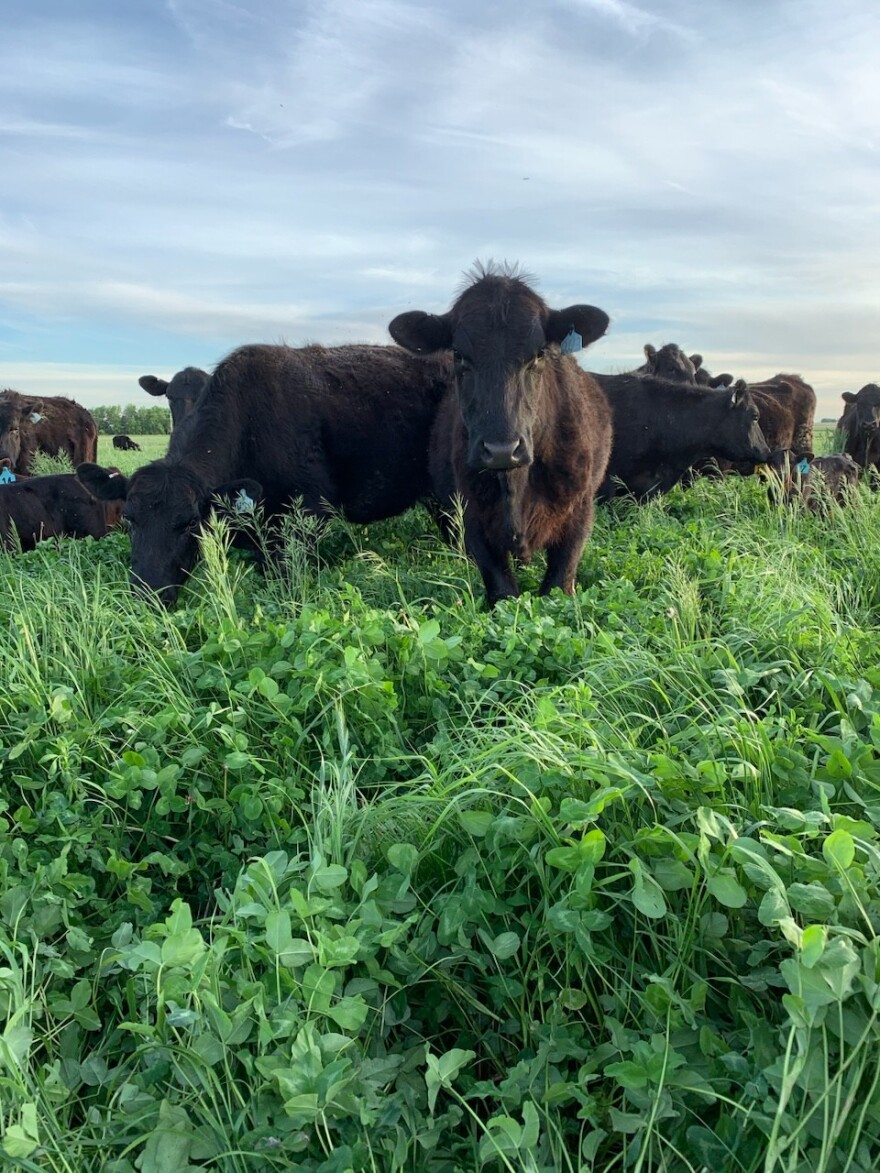Wendy Johnson considers herself an eternal optimist.
It's what helped her leave her job in the bustling Los Angeles fashion industry to pursue a dream 1,800 miles away.
She dreamt of a new, sustainable future for farmland in Iowa. Driven by a desire for change, she left the "Golden State" and moved home to her family farm in Charles City, where she felt fields of opportunities awaited her.

A farm-to-food dream takes root
Johnson’s dream rose from a connection she made at the farmers market. She would talk with vendors and ask them questions about the food's origins. Then at the end of the day, when she put food down on her kitchen table, she would know exactly where it came from.
The dream grew even bigger when she started growing food in her backyard garden and giving it away or trading goods with neighbors.
"It was just a really good feeling."
Eventually, Johnson developed a new mission in life. She decided that moving back to Iowa would be the best way to accomplish it.
"I wanted to grow food for people."
In Johnson’s mind, the agriculture industry was beginning to take a new shape, and she wanted to be a part of that change.
I wanted to grow food for people.Wendy Johnson
Observing from a distance, Johnson watched as her family farm changed: What was originally a hog farm became conventionally farmed corn and soybeans.
“I wouldn’t feel right in just farming corn and soybeans,” Johnson said, “It’s not part of our value system.”
While traditional corn and soybean production relies heavily on chemicals, Johnson wanted to take a more organic approach and "produce some of the most pure food possible."
And that’s just what she did.
In 2010, Johnson moved back to Iowa. In 2014, she began transforming the land on her family farm. After years of learning, Johnson found perennial pasture to be the perfect fit for her land.
“Perennial agriculture is one of the most resilient systems for growing food for people."

Johnson says the practice of perennial agriculture is a humane way to raise animals by allowing farm animals to graze in perennial pastures. It requires less tilling and fewer pesticides, ultimately cultivating crops for a longer duration than mainstream agriculture practices.
Rather than traditional annual crops that produce yields and must be replanted every year, perennial agriculture cultivates crops that live longer and don't need replanting. It's seen as a more sustainable option that requires less tilling, less labor and fewer pesticides. It also maintains soil health and can produce food.
For Johnson, it's a humane way to raise the animals that graze on the farm's perennial pastures.
The Jóia operation, which started with pigs and chickens, has expanded to a crop rotation system and added more livestock, including flocks of sheep and herds of cattle.
Now operating with diverse, perennial-based livestock, Jóia Food Farm uses regenerative farming practices to take food directly from the farm and place it in the hands of consumers. They sell meat, maple syrup, eggs and other products from the farm from their online store. Wool from their sheep is also used for bedding, mattress topper and other fiber goods.
"It took a long time to get to where we are today."
Full plates and hearts
In the years since she came back to Iowa, Johnson’s practices have touched the lives of those around her.
Glenn Nelson, a retired mathematics professor at the University of Northern Iowa, is an avid reader of Johnson’s e-news updates. He finds her emails to be “uplifting.”
But more than Johnson’s emails containing cute photos of newborn calves, Nelson was drawn to Jóia Food Farm because of his interest in “nutritious, organic food.”
Wendy is the kind of person who really inspires others to do the right thing with regenerative farming.Glenn Nelson
A year ago, Nelson had the opportunity to hear Johnson speak at a fall festival dinner in Cedar Falls. He says he walked away from the event holding Johnson in the highest regard.
“Wendy is the kind of person who really inspires others to do the right thing with regenerative farming. [I] was just impressed with her knowledge and her commitment and her ability to communicate what it means to her and what it should mean to the rest of us.”
Feeding the future
More than a decade after returning to Iowa, Johnson appears to have accomplished what she set out to do.
Her devotion to sustainable agriculture has led her to receive nominations for several awards, including the Aldo Leopold Iowa Conservation Award, and to be named to the 2024 Grist 50 list of people who are working toward solutions to climate change.
And, as Johnson looks toward the future, she remains optimistic. She's fulfilling her dream of feeding people with locally grown food and leading the charge for more biodiversity in farming.
Her work also helps people to be more conscious of what they're consuming.

“I do feel really honored that people are thinking. They're thinking about where their food comes from, and they're caring about where their food comes from. And they're caring about how their food comes to them, or how that food is raised or grown."
Johnson hopes that as people start thinking more about their food, they'll be inspired to join her by adopting regenerative farming practices of their own.



